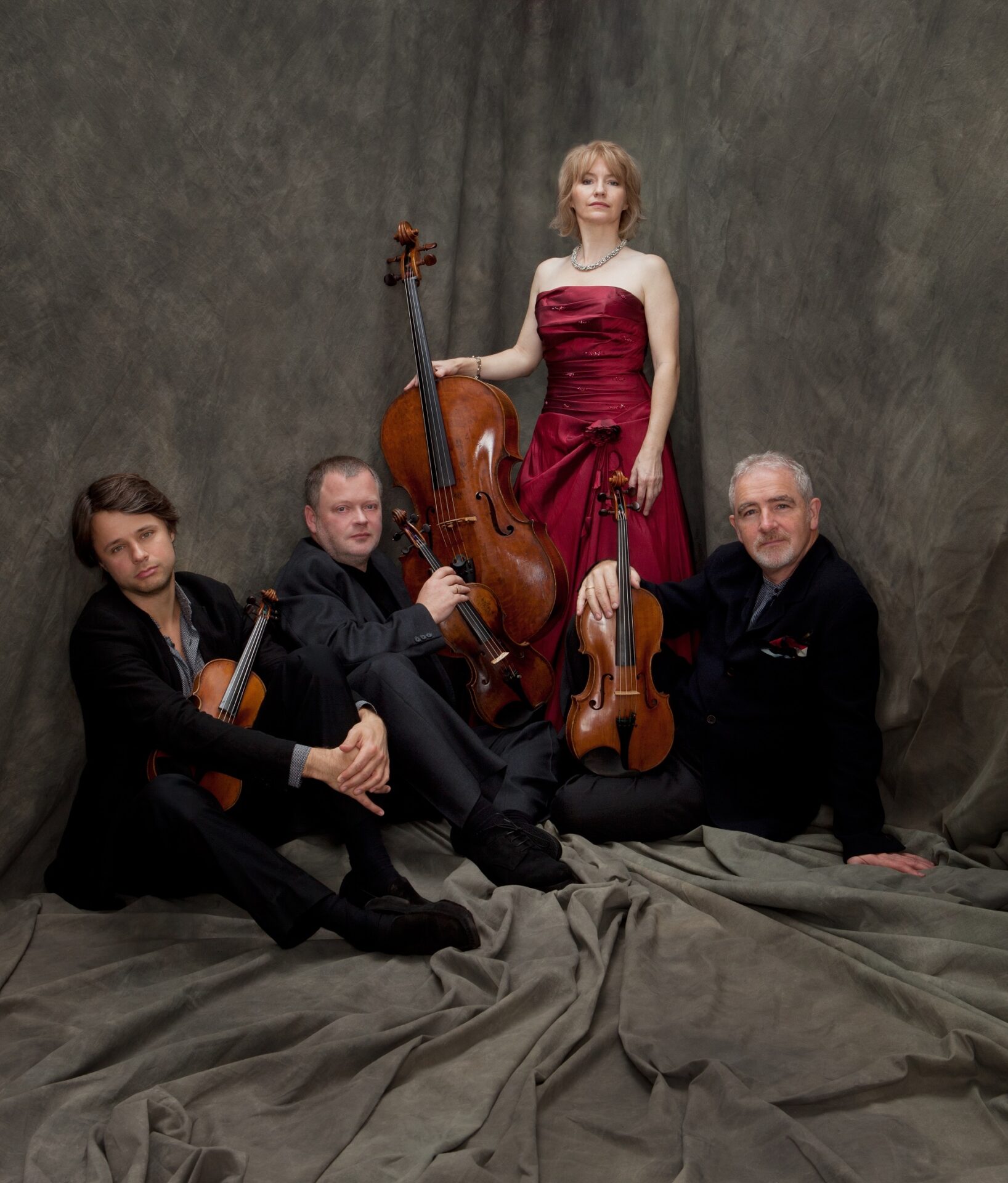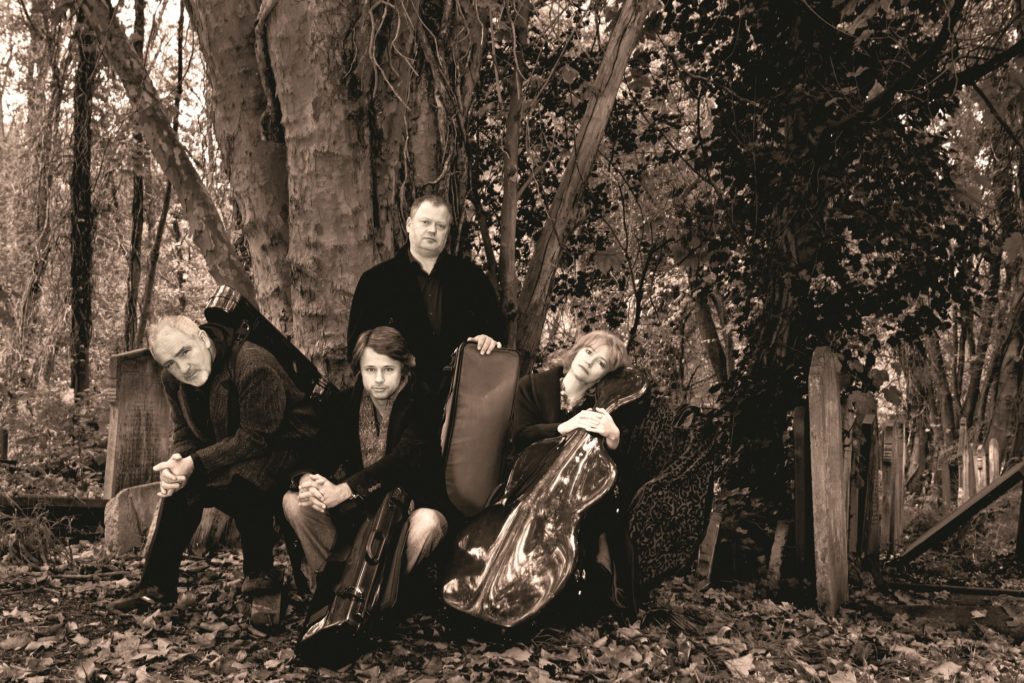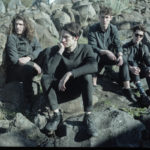For those who inhabit the world of popular music the name of the Brodsky Quartet is probably familiar due to their association with such contemporary cultural heavyweights as Paul McCartney, Björk (to whose Family Tree box set they notably contributed strings), Sting and Elvis Costello, with whom they collaborated on his 1993 studio album The Juliet Letters.
There is no doubting the Brodskys’ versatility. But this evening the four musicians – original members Ian Belton (violin) and Jacqueline Thomas (cello) who had helped form the quartet back in 1972, plus relative newcomers Paul Cassidy (viola) and Daniel Rowland (violin) – revert to their default position of the greatest classical tradition.
In the Howard Assembly Room tonight their performance is split into two broadly equal, yet quite distinct parts. The first half is Italianate in both its concept and execution, with the second inspired by and dedicated to the celebrated German composer Ludwig van Beethoven.
The concert commences with the Brodsky Quartet’s interpretation of Hugo Wolf’s ‘Italian Serenade’, a work originally written for a string quartet in the late 19th century and in which the Brodskys’ retain much of the Austrian composer’s subtle levity and lucid elaboration.
Giacomo Puccini’s ‘Crisantemi’ (Chrysanthemums) follows. Another piece originally composed for a string quartet and again dating from the late 19th century, here Belton, Thomas, Cassidy and Rowland infuse the work with a much darker complexion than its predecessor. Both, though, share the quartet’s innate, telepathic understanding of each other’s role within their collective sound.
They then conclude the first part of the concert by setting their reproductive sights firmly on ‘String Quartet in E minor’. Written by another great Italian composer, Giuseppe Verdi, it is powerful, expansive and technically complex. This is chamber music at its most dramatic and the Brodsky Quartet capture perfectly all of the contrasting urgency, aggression, and serendipity of each individual movement.
Karen Tanaka’s ‘At The Grave Of Beethoven’ – commissioned by the Brodsky Quartet on the occasion of the bicentenary of Beethoven’s opus 18 – opens part two of the performance and with it the Brodskys’ reflect not only some of the more gentle aspects of the contemporary Japanese composer’s heritage but also the horrendous visions of the civil war in Sarajevo that Tanaka witnessed on her TV screen when writing this piece in 1999.
Rather fittingly, the Brodsky Quartet end this virtuosic performance with ‘String Quartet in F major, Op. 135’, the last major work that Beethoven completed the year before his death in 1827. Their reading of this composition is as sensitive as it is bold, retaining all of the emotional tension, breathlessness and downright freedom of expression Beethoven had undoubtedly intended almost 200 years ago.
This is surely as close to musical perfection as you can possibly get. The playing is impeccable, flawless in fact, and in recreating all of these works what the Brodsky Quartet may lose in the absence of spontaneity and improvisation they more than compensate for with the music’s supreme cohesion, unparalleled luxuriance and unquenchable spirit.
Photo credit: Eric Richmond





